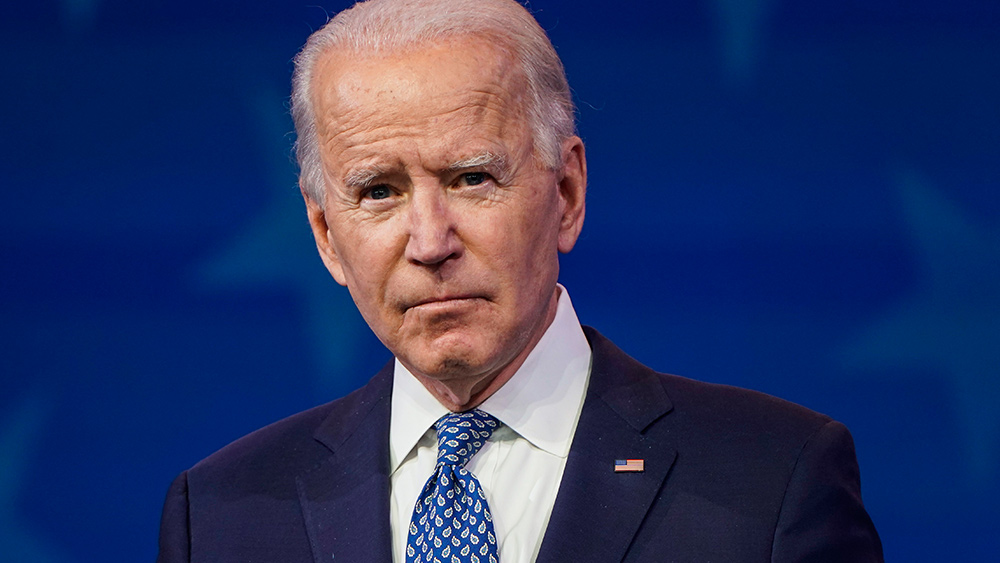
That retail chain is Dollar Tree, a company whose CEO Rick Dreiling says "is a victim of the macro environment out there."
Dollar Tree, which also operates the Family Dollar chain, has, like many other retail chains in recent years, seen a major uptick in theft and "inventory loss," as Dreiling puts it. This is probably due to the Black Lives Matter (BLM) riots, inflation, or more than likely both as society continues to unravel.
As the rich get richer and the poor get poorer, desperation increases. And stores like Dollar Tree and Family Dollar are not immune to its effects, even though they cater more towards being affordable for the working class.
Family Dollar stores are typically found in more urban areas and sell groceries along with other supplies, while Dollar Tree stores are primarily found in suburban areas and cater more to middle-income households looking for random knickknacks.
(Related: Last summer, pharmacy giant CVS slashed 5,000 jobs and closed 900 stores due to the continued economic slump, not to mention the fact that many of its customers died due to Wuhan coronavirus [COVID-19] "vaccination.")
More middle-class stores
Ever since Family Dollar acquired Dollar Tree back in 2015, the company has been suffering from what The Wall Street Journal describes as "indigestion." Company executives tried to help the brand along by renovating some Family Dollar locations while also closing 600 stores.
Thanks to your generous support, we are building the infrastructure of human freedom and actively donating our technology to independent publishers, authors and home schooling organizations. Learn about our game-changing non-commercial AI project here. Support our ongoing efforts to preserve and enhance human knowledge by shopping at HealthRangerStore.com.
Dreiling, who was CEO of rival Dollar General before joining Dollar Tree, is now attempting to revive the brand once again and improve its balance sheet. In the first half of 2024, he plans to close about 600 Family Dollar stores, followed by an additional 370 Family Dollar stores and 30 Dollar Tree stores in years to come.
The stores slated for closure are underperforming while consuming too much of district managers' time, he told investors on a conference call. The closures will result in a decrease of about $730 million in revenue annually, with full-year sales expected to range between $31 billion and $32 billion.
The plan is to open more stores under the Dollar Tree model as opposed to the Family Dollar model as Dollar Tree stores are seeing an expansion in product offerings along with higher prices.
Dreiling says the Dollar Tree chain is seeing increased customer interest among households making more than $125,000 a year.
Like with rival Dollar General, Dollar Tree is not quite achieving what it had long planned previously, though, with more stores being closed rather than new stores opening. Both dollar chains had hoped to gain a greater market share against big boys like Walmart and Amazon, but that plan has not materialized.
During the recent holiday quarter, Dollar Tree's earnings saw a $2 billion wipeout. In the first three months of the new quarter ending on February 3, the company reported a $1.71 billion loss compared with $452.2 million in profits a year earlier. Sales, meanwhile, increased almost 12 percent to $8.63 billion.
So far in the current quarter and for fiscal 2024 as a whole, company executives are forecasting earnings being lower than what analysts were expecting.
All of this mostly bad news led to Dollar Tree's share price falling by more than 14 percent while also weighing on shares of other discount retailers. Shares of Dollar General and Five Below, another competitor, also dropped by more than one percent each.
The U.S. economy is in dire straits, regardless of how heavily they pump the markets. Learn more at Collapse.news.
Sources for this article include:
WSJ.com
NaturalNews.com
Source link

